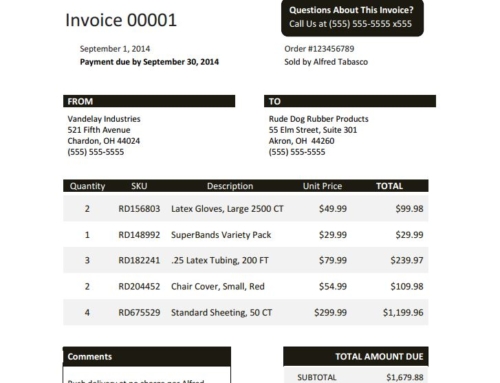In order to stay compliant with all of the laws that affect accounts receivable professionals, you have to stay on top of and aware of all the current laws. A best practice for this would to stay educated. Never stop learning about your industry and what the latest trends are. However, if you simply don’t have the time to go to every educational session on how law affects the accounts receivable field, there are some best practices you can enact to ensure you are staying compliant.
RECOGNIZE AND KEEP TRACK OF DISPUTES
As we highlighted in the Fair Credit Billing Act, your days are numbered to collect on the full amount of disputes. You must respond to a customer within 30 days recognizing the dispute and then resolve it in 90 days. A best practice to avoid losing out on your disputed invoices is to keep track of every dispute by assigning a dispute code to it. One easy way this is possible is by using an automated accounts receivable software. You can easily search for disputes by date, so no invoice slips by without being addressed. You can even set reminders to be sure you respond by the required date.
HAVE A DEFINED CREDIT PLAN
Following the Equal Credit Opportunity Act is a best practice in and of itself. The only reason a person should be denied credit it based off of their credit history. As an accounts receivable department, it is best to create a defined credit plan to ensure every credit professional is following this law. Your defined credit plan will state exactly what questions should and shouldn’t be asked of a potential customer when they are being considered for credit terms. If you create a business credit application, every customer will be asked the same questions and their credit worthiness will be decided by the points they score on the application. This keeps the process unbiased and clear cut.
USE TEMPLATES
There are many situations where this could apply to ensure you stay compliant to all the credit and collections laws. The Fair Debt Collection Act states that you have to disclose to the customer specific information pertaining to their debt before the collections process begins. If you don’t you could lose out on collection of the invoice. Using a template forces collectors to fill in all the specified information so they will stay compliant. For the Truth in Lending Act, the credit and collections department is required to disclose all details of the credit terms. By using a template, you can ensure all the details are filled in.
HAVE A COLLECTION PLAN
Using a collection plan ensures everyone in the accounts receivable department is following the correct way to collect on past due accounts. This collection plan can outline what they should say when faced with difficult customers, when and how often they should call a customer who is past due, how they can deal with frustrating situations and sample call scripts for common disputes. The Fair Debt Collection Act outlines a lot of what a collector can and cannot say. By including this in detail in a collections plan that every collector is required to follow, the department will be sure to follow all the stipulations in the Fair Credit Debt Collection Act.




